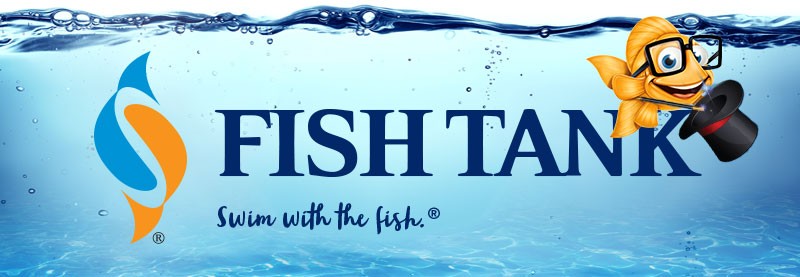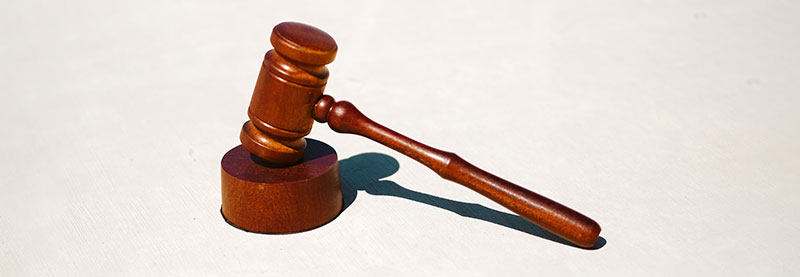Intellectual Property Insights from Fishman Stewart PLLC
Newsletter – Volume 23, Issue 24
Share on Social

COOL MOVES AND MAGIC TRICKS
By Barbara Mandell
Intellectual property lawyers don’t just prepare arcane treatises on scientific and technological topics, i.e., patent applications. We also have a host of cool moves and magic tricks up our sleeves. Here are a few:
We can launch proceedings to take down an entire website if the URL/domain name associated with that website is confusingly similar to one of our client’s registered trademarks. To accomplish the takedown, we would also need to establish that: (1) the owner of the URL has no legitimate interests in the domain name; and (2) the domain name was registered and used in bad faith. One example of a bad faith domain name is when the opposing party engages in typo-squatting, or wrongfully registers a domain name with a slight modification of a famous domain name. Some examples of typo-squatting are wallmart.com or jetspiza.com. One goal of typo-squatting is to capture the legitimate company’s customers who fail to notice that they are clicking on an erroneous URL.
This magic proceeding is known as a UDRP, or Uniform Domain Name Dispute Resolution Proceeding. The UDRP was introduced in 1999 by the Internet Corporation for Assigned Names and Numbers (ICANN) to protect the integrity of the then-budding Internet. The two remedies available to a trademark holder are cancellation of the infringing domain name registration or transfer of that registration to the trademark holder. Trademark holders have a choice of forums in which to bring a UDRP. We have used the National Arbitration Forum.
Another magic “take-down” proceeding we can bring is one under the DMCA (Digital Millenium Copyright Act), against a website owner and/or an Online Service Provider if the client’s copyrighted intellectual property is found online without permission. A client may also initiate this proceeding on its own. See an example form here.
Amazon and other websites also have provisions for the takedown of, for example, counterfeit products, such as their infringement reporting tool. A critical first step to do a take-down on Amazon is to register your brand with the Amazon brand registry. Amazon sometimes requires verification to confirm that the agent represents the rights owner and may ask for the name and phone number of the Company’s representative, along with its Business Tax I.D. Even taking into account the verifications, the whole process may take little more than a day for owners of active U.S. trademark registrations and applications on the principal register.
What happens if you’re at a trade show and there’s a booth with your product, or what seems to be your product, but is actually a counterfeit? We can help here as well by filing a seizure action in the federal court located in the trade show’s jurisdiction such as, for example, Las Vegas.
Not surprisingly, the federal court in Las Vegas has a lot of experience with such proceedings. Thus, for example, when a patent holder files a patent infringement complaint, usually at the beginning of a trade show, the holder would also file an emergency motion for a temporary restraining order (“TRO”). Among other things, these TROs would prohibit the defendant from offering to sell or selling infringing items at the show (or elsewhere in the United States) and from processing payment on the sales. TROs will sometimes order that all web hosting companies having notice of the Court’s Order take any action necessary to remove the infringing products. Plaintiffs frequently include in their motions for emergency relief a request for a seizure order, allowing federal marshals to enter the floor of the show and remove the counterfeit products.
So, the next time you need an Intellectual Property lawyer for a cool move or a magic trick, let us know!
Barbara Mandell is a partner at the firm. She has over 30 years’ experience in complex litigation. Her practice is focused on litigating, arbitrating and counseling her clients on patent, trademark and licensing matters as well as antitrust law.
Related Content from Fishman Stewart
In our previous FishTank article “The Great Beige-Off: Influencer Sues for ‘Vibe’ Infringement,” we reported on Sydney Nicole Gifford’s lawsuit against fellow influencer Alyssa Sheil over allegations of copyright infringement involving neutral-toned social media content.
People have long pondered whether or not the Giza pyramids were indeed solely burial chambers, which was the only known, and archaeologically determined, use—until now.
As the story goes, Klein was so taken with the indescribable blue of the sky over the Mediterranean in Nice, France, that he dedicated his artistic talent developing a blue that would imbue the canvas with this color in its purest form.
Despite her pseudo-legal background in Suits, Meghan has been running into one issue after another in her efforts to register the trademark and logo for her new lifestyle company, for now, called “AS EVER”.
By 1930, efforts began in New York to replace Mother's Day with Parent's Day because men were more than just breadwinners. Those efforts didn't catch on, probably because in that era, women often spent more time in the home.
In February, Nike and Skims announced that they will be working together on a new brand, NikeSkims. The co-brand will create a new line of training apparel, footwear, and accessories specifically designed to meet the unique needs of women athletes.
Generally, federal courts have exclusive jurisdiction over copyright cases, and often, this presents an insurmountable paywall for individual artists and small businesses to vindicate their rights, especially where the value of the individual copyrighted works are relatively low.
Dedicated to raising public awareness about the importance of encouraging innovation and creativity throughout the world, the World Intellectual Property Organization (WIPO) annually observes World Intellectual Property Day on April 26 to showcase the role that patents, trademarks, industrial designs, copyrights and trade secrets play in our everyday lives.
Hold onto your foam fingers, sports fans – college sports just got a whole lot more interesting! The latest updates to Name, Image, and Likeness (NIL) rules are making student-athletes bigger than ever, and it’s not just about the game anymore.
Did a federal court in Louisiana recently decide that US copyrights are global rights? It seems so.
IDENTIFYING, SECURING AND ADVANCING CREATIVITY®

















